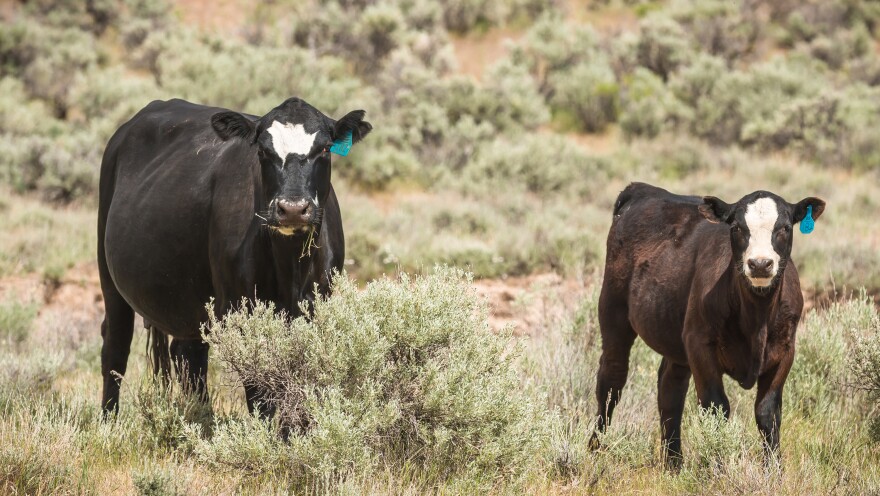Researchers from the University of Michigan and the University of Minnesota mapped what they call the “carbon hoofprint” of more than 3,500 U.S. cities — a measure of greenhouse gas emissions tied to meat consumption. They found that meat-eating generates as much climate pollution as the energy use of tens of millions of homes.
In the Mountain West and Southwest, cities tend to have higher “carbon hoofprints,” since much of their beef comes from dry, feedlot-heavy regions that require significant feed and water resources.
“Reducing beef consumption can have large reductions in your hoofprint,” said Benjamin Goldstein, a researcher at the University of Michigan and one of the study’s authors. “Changing to chicken, switching to pork, or, heaven forbid, tofu, right, once in a while.”
The study estimates that cutting beef consumption in half could reduce meat-related emissions by up to 50%.
The U.S. Cattlemen’s Association did not respond to a request for comment.
This story was produced by the Mountain West News Bureau, a collaboration between KUNR, Wyoming Public Media, Nevada Public Radio, Boise State Public Radio in Idaho, KUNC in Northern Colorado, KANW in New Mexico, Colorado Public Radio, KJZZ in Arizona and NPR, with additional support from affiliate newsrooms across the region. Funding for the Mountain West News Bureau is provided in part by the Corporation for Public Broadcasting and Eric and Wendy Schmidt.



